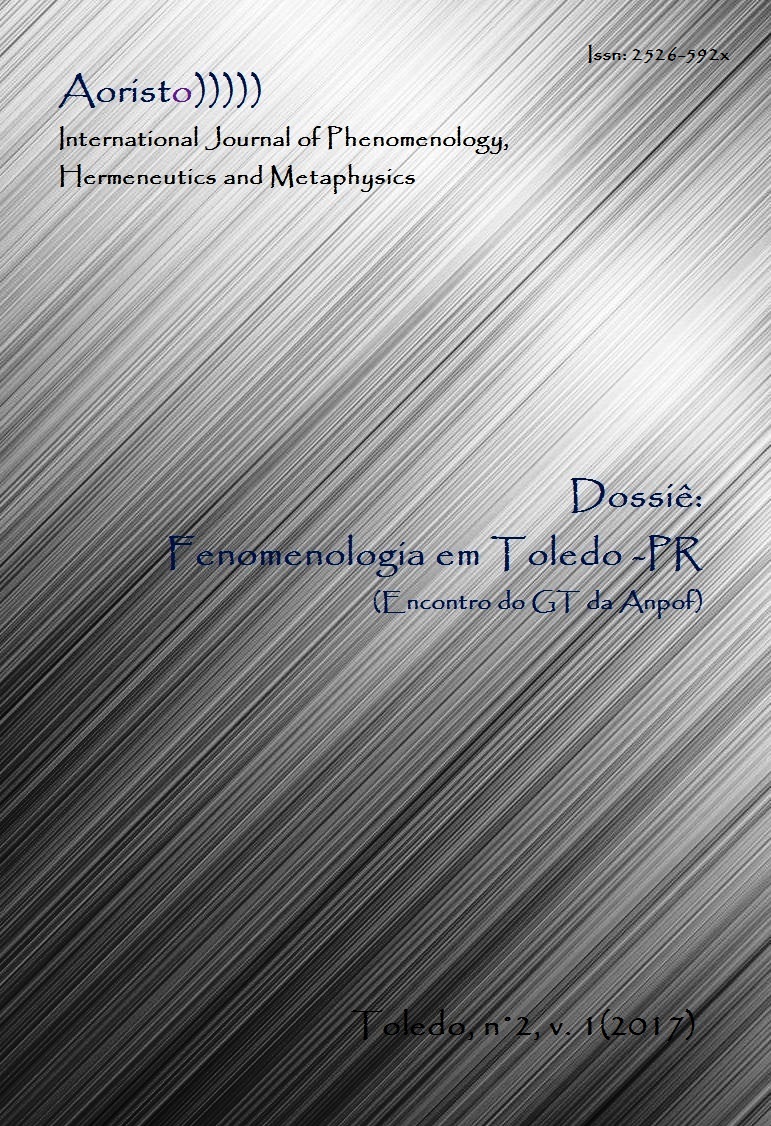Psicologismo e psicología em Edmund Husserl
DOI:
https://doi.org/10.48075/aoristo.v1i2.18209Palabras clave:
Fenomenologia, Husserl, Psicologismo, PsicologiaResumen
O objetivo deste trabalho é examinar a crítica ao psicologismo de Edmund Husserl para avaliar sua posição no que diz respeito à psicologia empírica. Procurarei mostrar, em primeiro lugar, que Husserl, em Investigações lógicas, tem como alvo o psicologismo lógico e uma determinada forma de psicologismo epistemológico. Em segundo lugar, buscarei mostrar que a fundamentação epistemológica da lógica pura, como ciência teórica, implica em uma teoria da subjetividade. Um dos objetivos de Husserl em Investigações lógicas é empregar a fenomenologia, entendida como forma peculiar de psicologia descritiva, para elaborar uma
nova teoria da subjetividade, por meio de uma análise descritiva das vivências envolvidas na obtenção do conhecimento teórico. Depois irei discutir o lugar que a psicologia empírica passa a ocupar depois da crítica ao psicologismo em Investigações lógicas.
Descargas
Publicado
Cómo citar
Número
Sección
Licencia
Derechos de autor 2017 Aoristo - International Journal of Phenomenology, Hermeneutics and Metaphysics

Esta obra está bajo una licencia internacional Creative Commons Atribución-NoComercial-SinDerivadas 4.0.
Copyright Notice
1. I grant the AORISTO – International Journal of Phenomenology, Hermeneutics and Metaphysics the first publication of my article, licensed under Creative Commons Attribution (which allows sharing of work, recognition of authorship and initial publication in this journal).
2. I confirm that my article is not being submitted to another publication and has not been published in its entirely on another journal. I take full responsibility for its originality and I will also claim responsibility for charges from claims by third parties concerning the authorship of the article.
3. I also agree that the manuscript will be submitted according to the Aoristo’s publication rules described above.
License Creative Commons
This work is licensed under a Creative Commons Atribuição-NãoComercial-CompartilhaIgual 4.0 Internacional, which allows you to share, copy, distribute, display, reproduce, in whole or in part, for as long as there is no commercial purpose, and authors and source are cited.


